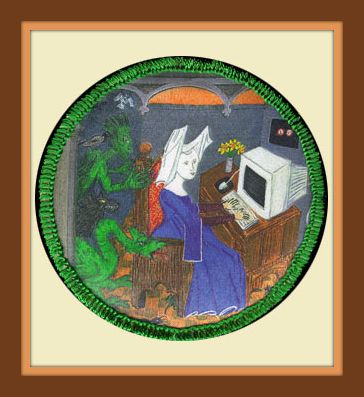Reading Oprah is a somewhat academic treatment of Oprah's book club by an English literature professor. I was drawn to the book because the author, Cecilia Konchar Farr, is a former BYU prof who now works in my geographical area. In the book, Farr makes a compelling case that Oprah has truly created a reading revolution. By interspersing serious heavy-weight literature with lighter choices, Farr claims that Oprah has been able to improve the critical reading skills of a large number of woman, and, as a professor of literature, admits to envy at her widespread influence. She breaks down several of the book group discussions in detail, and in particular, focuses on the selections written by Toni Morrison, who attended the discussions (as did all the authors), to provide lesson in thinking deeply and critically about reading.
She also has a fascinating section where she discusses the tension between economic consideration and cultural capital. It is often the case that blockbuster books are not necessarily those with high literary quality. Yet, as an author, the desire to sell books is of course an important consideration. With Oprah's imprimatur, the book club selections were destined to become best sellers. And with her nod of approval, books that could have been previously unknown were being read by thousands of women across the country. These tensions erupted in the choice of a Jonathan Franzen novel. He decided after the original selection that his book was "too good" to be an Oprah book. That it was better destined for elite and highly selective readers. I admit that in the past, I have pooh-poohed Oprah books and have made a conscious choice to avoid them. I felt that they were either pull-yourself-up-by-your-bootstraps, scrappy underprivileged heroine finds amazing success against the odds or self helpish books. Essentially that they were too "middle-brow" for me. But after reading this, I thought that I should pick up a few Oprah books and I admire what she is trying to do.
I also was fascinated by the academic treatment of book groups. On the personal side, I have been in two different book groups over the past 2 1/2 years. And they have been an important part of my life. I love getting together with other women to talk about a book, the ideas it contains, and about our lives. Farr discusses the talking life of a book. Books, she argues, are not only for private and solitary consumption, but, at times, they can also have a social and public function. Books that are rich with ideas, that cause us to reflect on their deeper and broader meanings and applications, and that teach us about ourselves are ideal for shared discussion. As an academic and sociologist, I love the idea of using academic methodology to explore this social phenomena.
Saturday, March 31, 2007
Reading Oprah
Labels:
Off the Stacks
Subscribe to:
Post Comments (Atom)

No comments:
Post a Comment